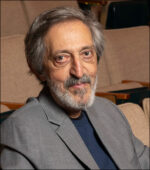The Association for Computing Machinery announced last week the recipients of six prestigious awards for 2009. The awards recognize the winners for achievements in the computer sciences for innovations that have real-world impact. Contributions range from improvements in health-care, education and Internet security, as well as network efficiency and safety. The recipients come from internationally known research and academic institutions, and include practiced innovators as well as promising newcomers.
Paris Kanellakis Theory and Practice Award
Recipients Mihir Bellare and Phillip Rogaway were recognized for their development of practice-oriented provable security. Bellare defined this development in a short article entitled “Practice-Oriented Provable-Security” as the application of the ideas of “provably security” to the derivation of practical, secure protocols. This has resulted in high-quality, cost-effective cryptology, which is a key component in Internet security. Bellare, a professor at the University of California, San Diego, and Rogaway, a professor at the University of California, Davis, partnered to create a modern cryptographic theory that would reduce the risk of cyber attacks in the real world.
Software System Award
Recognized for creating VMware Workstation 1.0, Stanford University professor Mendel Rosenblum, along with colleagues Edouard Bugnion, Scott Devine, Jeremy Sugerman and Edward Wang, brought virtualization technology to modern computing environments. This led to a shift in virtual-machine architectures and enabled users to efficiently run multiple operating systems on their desktops. This technology is now adopted by large-scale data operators to increase efficiency and security in shared computational resources. It has also caused processor vendors to modify their designs to support virtualization.
ACM/AAAI Allen Newell Award
Michael Jordan, professor at the University of California, Berkeley, was recognized for his advances in statistical machine learning. His achievements include a focus on graphical models, kernel machines and Bayesian nonparametric statistics, said an ACM statement. His work has impacted signal processing, information retrieval, computational vision and natural language processing.
Grace Murray Hopper Award
Tim Roughgarden was recognized for his introduction of novel techniques that quantify lost efficiency with the uncoordinated behavior of network users who act in their own self-interest to the detriment of the rest of the system, according to an ACM statement. An assistant professor from Stanford University and author of “Selfish Routing and the Price of Anarchy,” he bridged a gap between theoretical computer science and the networking research community. His achievements have also helped capture the important role of strategic behavior on the design and analysis of future networks.
Karl V. Karlstom Outstanding Educator Award
Matthias Felleisen is the recipient of this award for his ongoing contributions to K12 outreach programs. A trustee professor at Northeastern University, he contributed the idea of a “design recipe” to the computing curriculum, which is a set of steps to help students focus on problem-solving and logical thinking. In 1995, Felleisen founded the TeachScheme project, which has trained more than 700 educators in computing; he also played an instrumental role in setting up the Bootcamp after-school programs for students in groups underrepresented in the computing field.
Eugene L. Lawler Award for Humanitarian Contributions Within Computer Science and Informatics
For promoting a vision of health-care and education that incorporates the use of advanced information technologies, Gregory D. Abowd is recognized for addressing challenges related to the diagnosis and treatment of behavior disorders, such as autism, and the assessment of behavioral change within complex social environments. This work from the Georgia Institute of Technology professor has resulted in the development and optimization of behavioral evaluation protocols for use by parents, caregivers, educators and health care clinicians.





